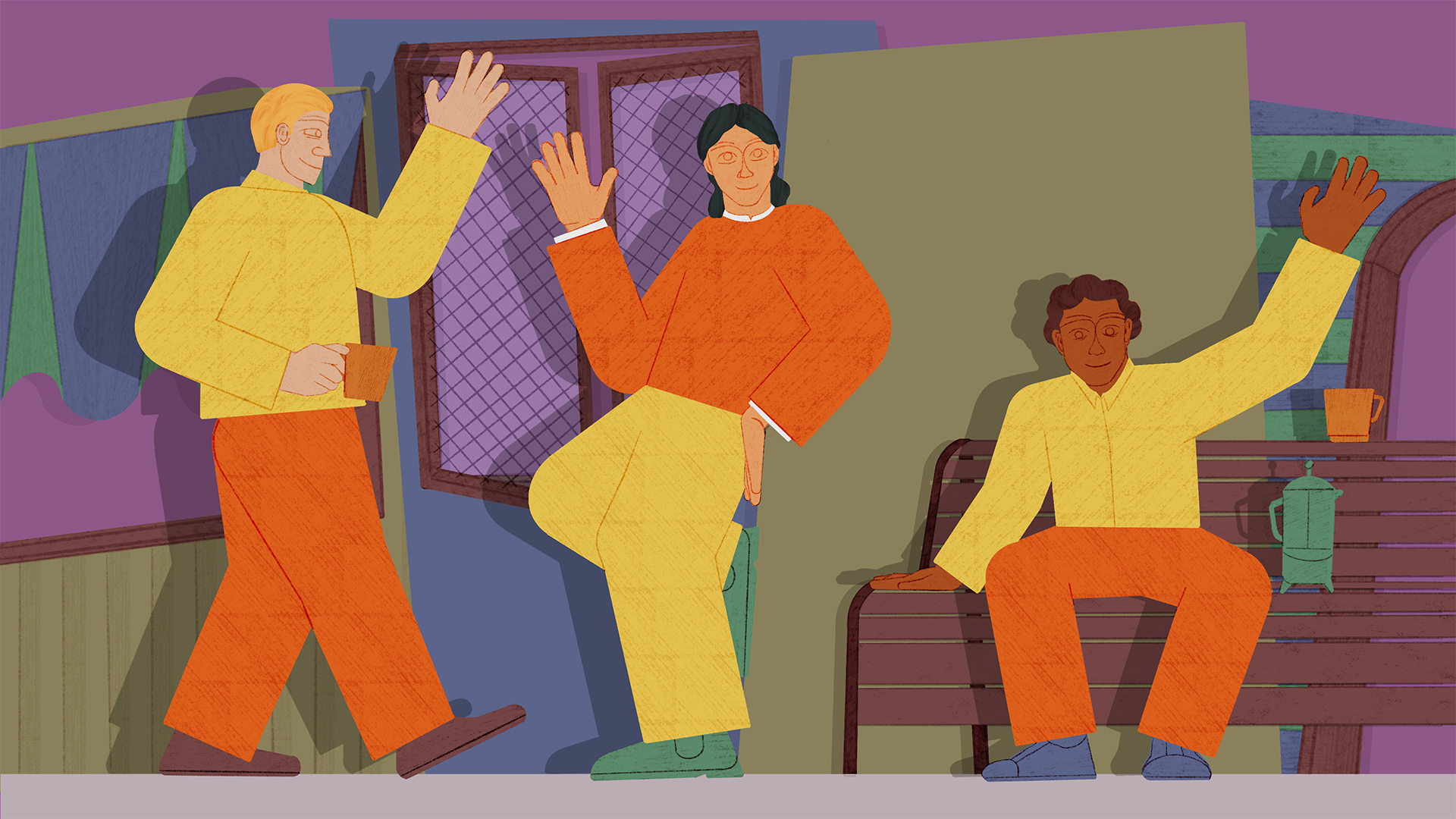
Photography by Hugh Fox
“Pubs and leisure have always been a slightly neglected part of the surveying scene,” says Stephen Radford MRICS, head of estates at Punch Pubs & Co. “You find people either love the sector or hate it.
“Those who like it have been there for 20 plus years because it is quite addictive. You’ve got an asset class that we can all relate to. Everyone’s got a view about going to the pub.”
Radford has been a pub surveyor for 26 years working for a range of UK and international pub retailers and brewers, including Greene King and Heineken. He joined Punch Pubs in early 2019 and he now manages its 1,400-pub estate as well as its highly active acquisitions, disposals and development programmes.
Punch, along with the wider pub industry, sits at a crucial intersection in British cultural and economic life. Going to the pub is how many Brits meet, socialise and relax. In fact, according to market research firm Mintel, nine out of 10 adults in the UK visit pubs. They are stitched into UK heritage, sitting at the centre of community life for hundreds of years, while generating nearly a million jobs and £26bn in added value to the economy every year.
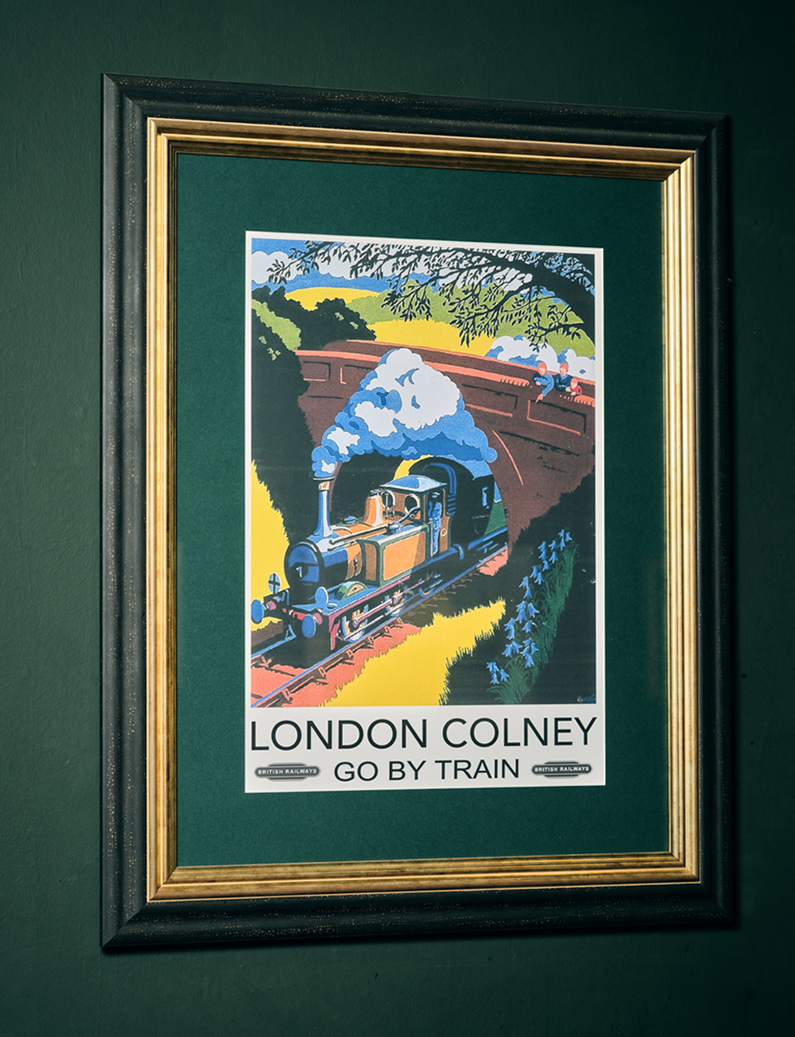
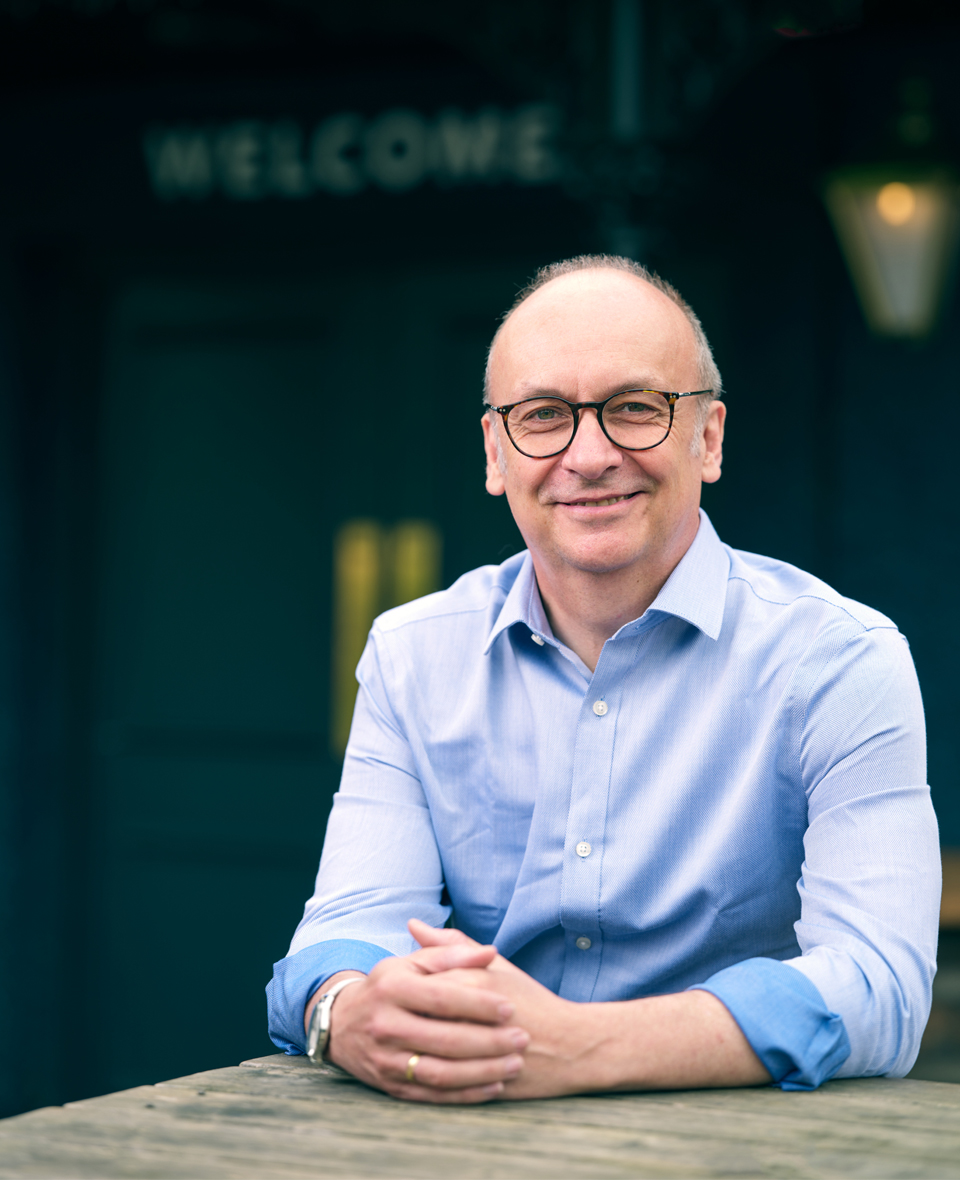
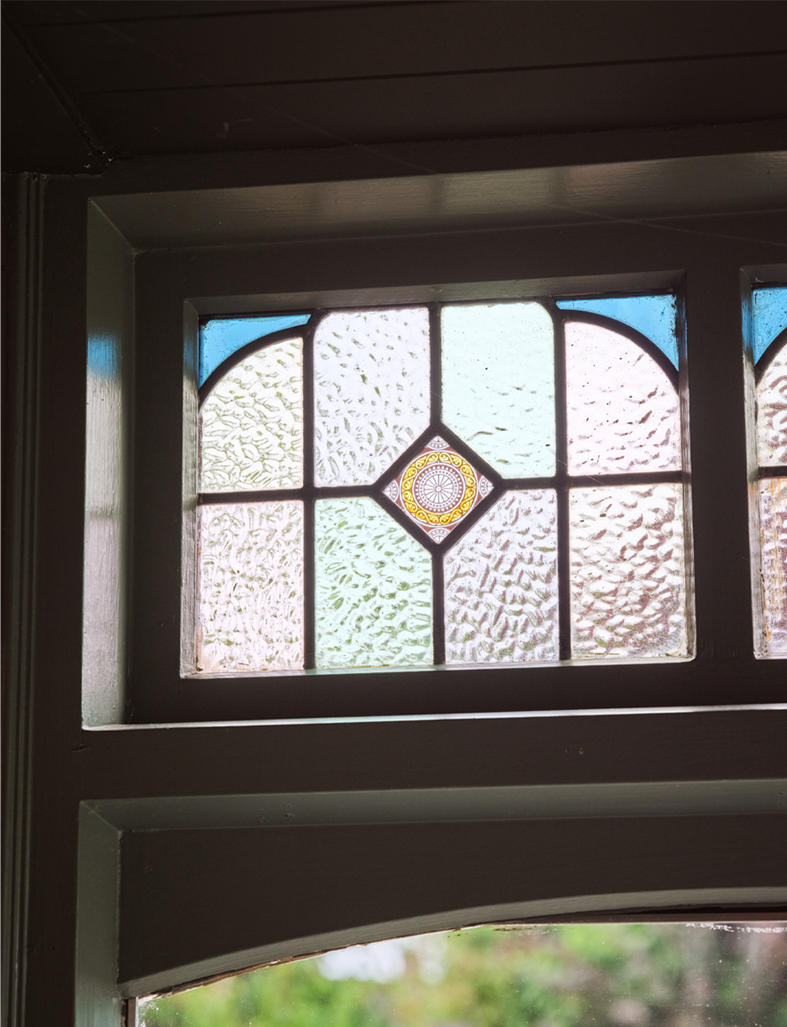
“We’re one of the few parts of the profession where valuation is based on the profits method” Stephen Radford MRICS, Punch Pubs & Co
It’s an asset class that touches people, communities and business, says Radford, which means pub surveyors require a special skillset.
“We’re one of the few parts of the profession where valuation is based on the profits method,” he explains. “So we have to fully understand the business. That’s always been the interest for me. It does make you a boring date though. If I’m out with my friends and family, I start counting the number of customers and how long they’re taking to bring the bills.”
There’s also an emotional dimension to his job. Publican employees both live and work in pub company assets, while customers feel a deep sense of ownership over their locals.
“You have to be good with people,” he says. “The real estate bit is easy to deal with. I feel sometimes its 60% psychology and 40% academic.”
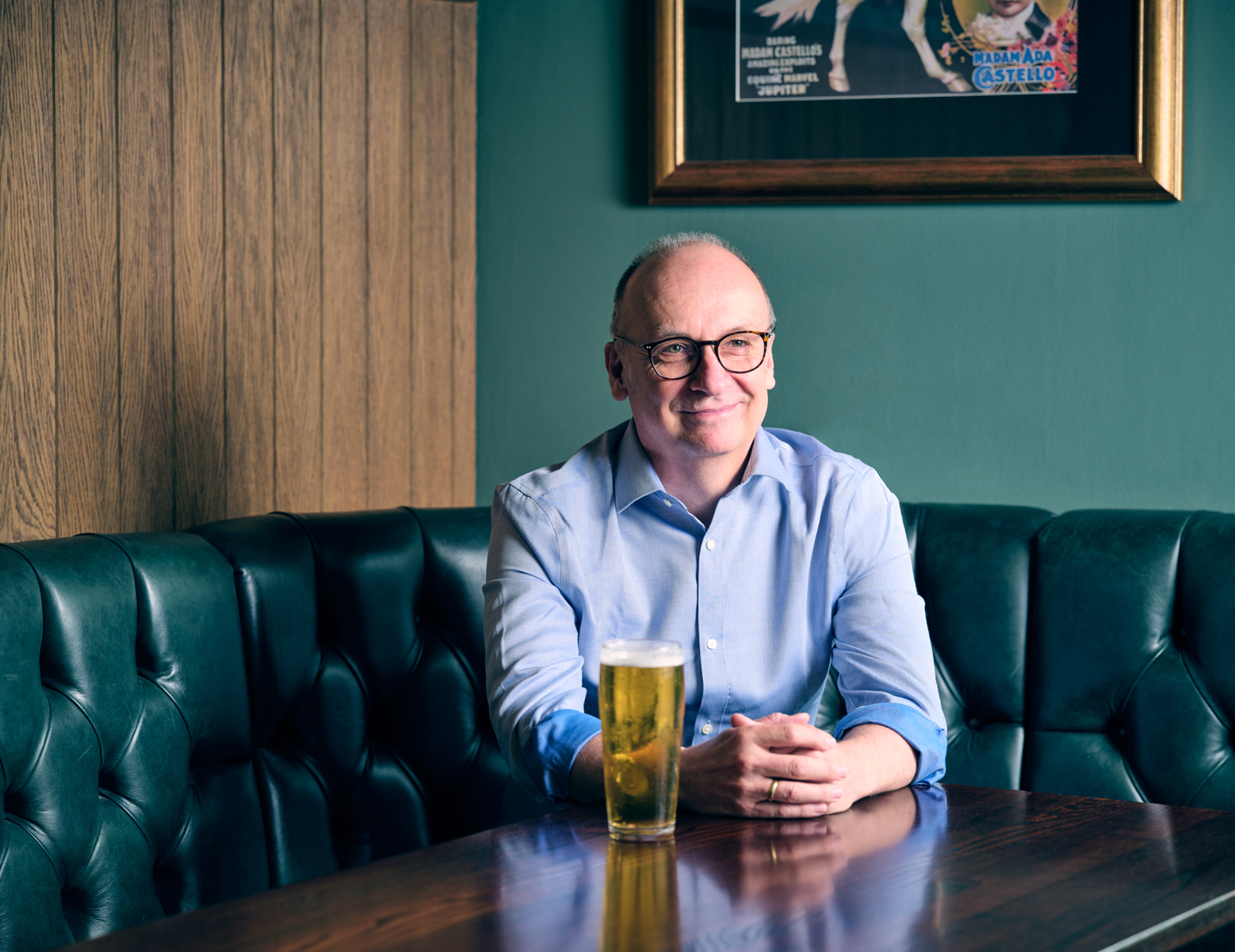
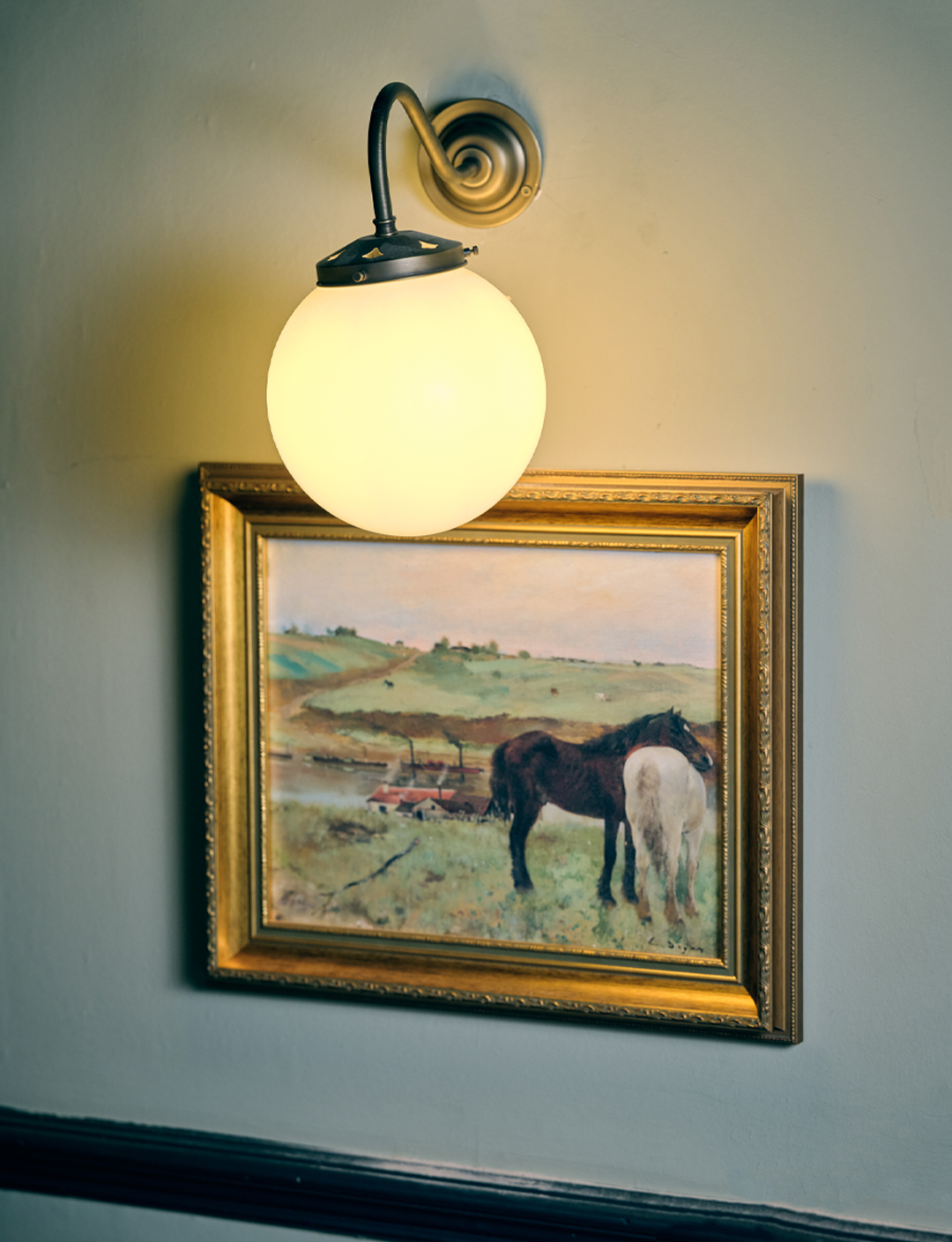
“It’s an asset class that we can all relate to. Everyone’s got a view about going to the pub.” Stephen Radford MRICS, Punch Pubs & Co
Managing the estate
A typical day for Radford is “infrequent”. He describes his job as being split into distinct areas. He manages a team of nine, including five chartered surveyors, who set the rents for its leased estate of around 900 pubs, which generates millions of pounds of rent annually. The rest of its estate is run through a managed franchise-style model. Radford manages the day-to-day needs of Punch’s estate, from neighbour disputes down to party wall issues.
He also oversees the group’s acquisition strategy, which has a target of buying 100 sites over the next four years. This is driven by its US-based private equity owner Fortress Investment Group, which acquired the business in 2021 for a reported £1bn. At the “bottom end of its estate,” Radford is managing its disposals, selling pubs he deems no longer viable in their operating model, generating between £15m and £25m a year.
But his eye is also on development, making optimum use of all of Punch’s land. This ranges from building houses – he enjoys watching once derelict land being turned into homes – to creating retail units or renting out space to companies such as Amazon for lockers. This development activity has produced £45m in capital receipts since 2017.
“The pub estate is varied and then, in between times, we manage things like phone boxes and parcel lockers. We’ve got just about every asset that you can imagine that we deal with.” He says he speaks to Punch’s owners on investment and disposals decisions on a “near daily basis,” while he tries to visit one of the company’s pubs at least once a week.
He concedes that at times the job can be stressful, and if he’s been out in pubs all day, they aren’t always a source of relaxation for him. He’s been restoring a motorbike in his spare time and says concentrating on riding allows him to “shut down everything else… It’s probably a bit odd, throwing yourself down the road on two wheels, but it is strangely calming”.
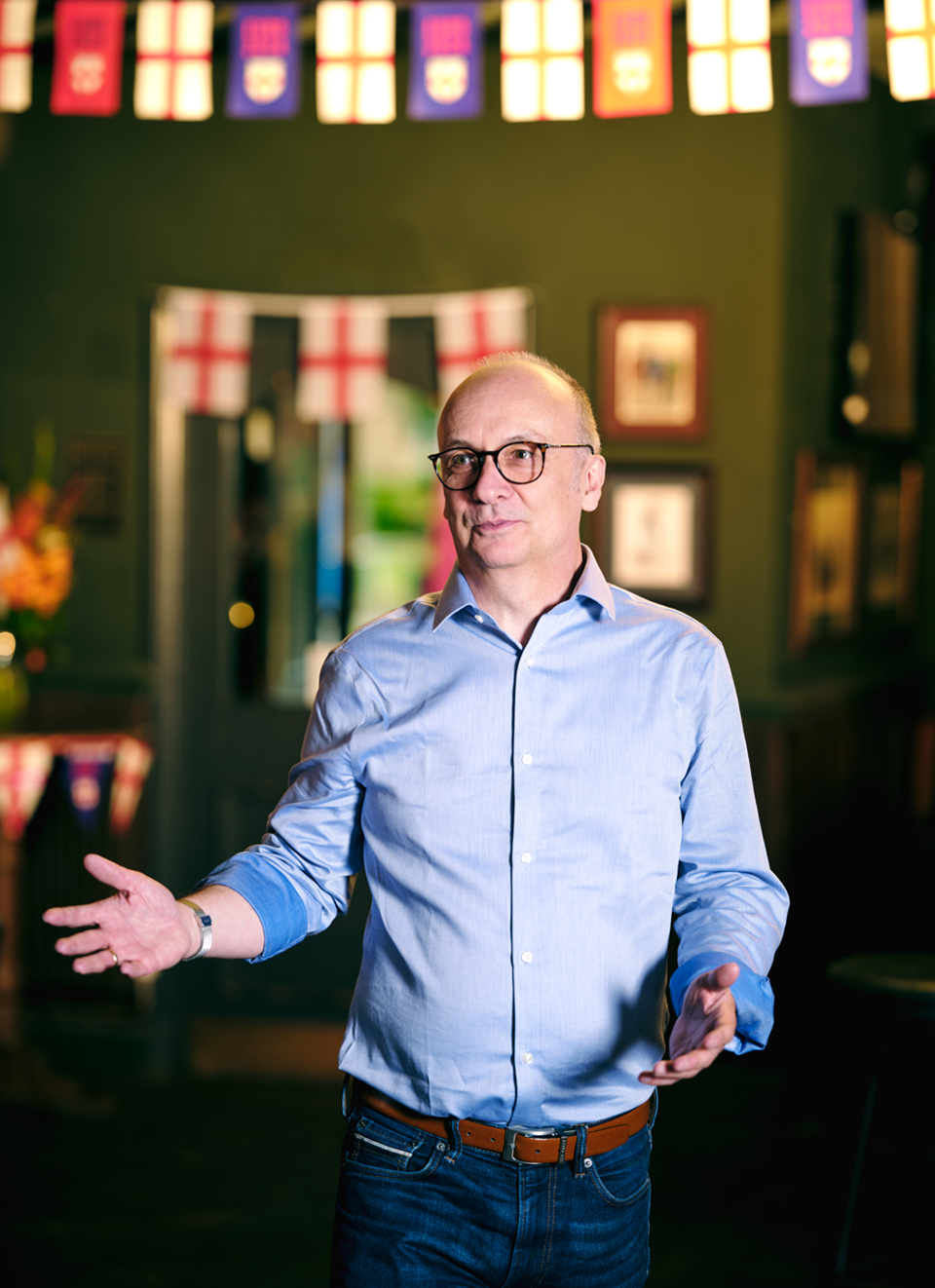
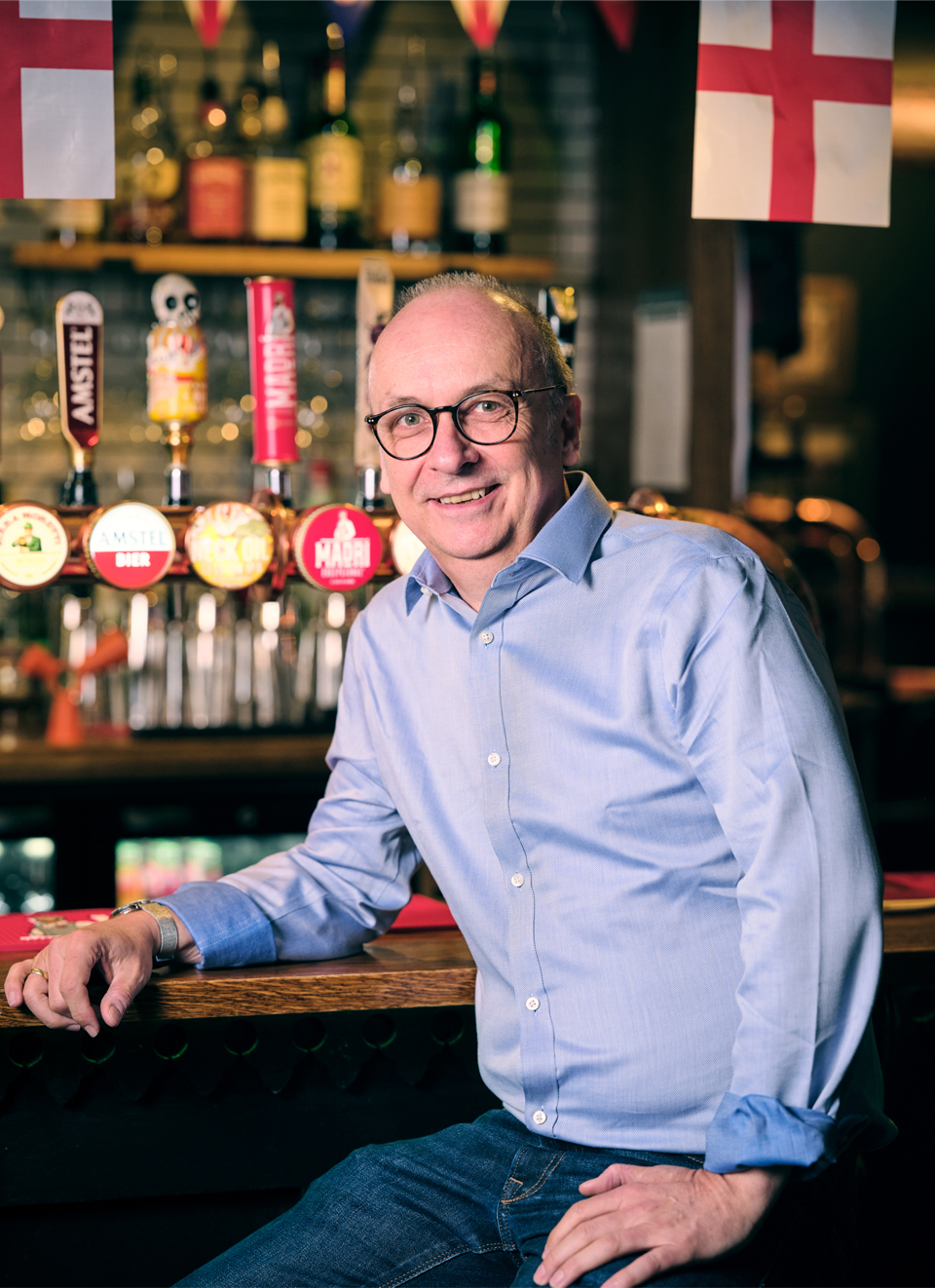
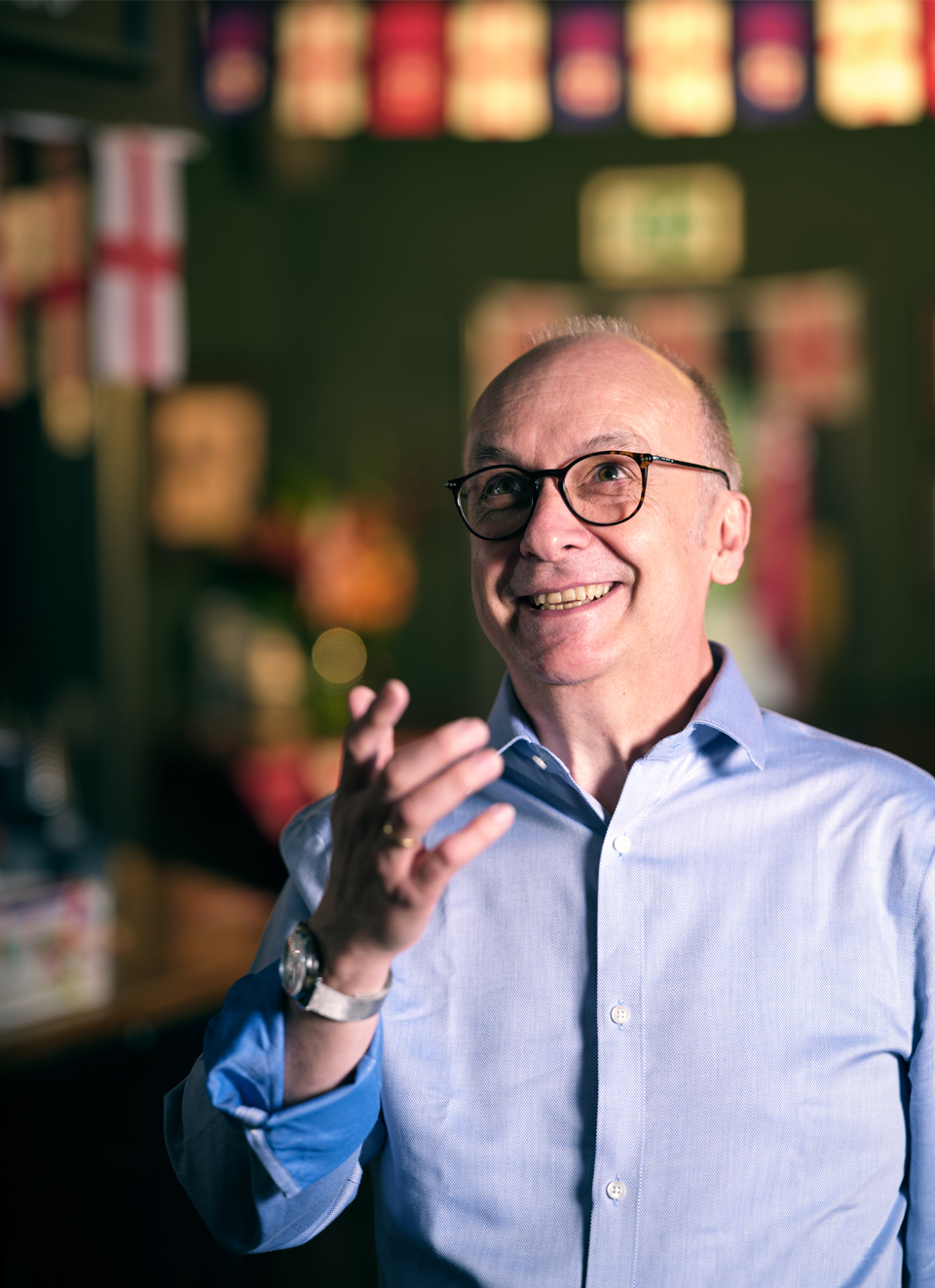
Changing habits
In an industry highly exposed to social, economic and legislative changes, future-proofing the estate is crucial to the pub business.
“COVID-19 was a terrible tragedy, but it did teach us some lessons,” says Radford. “People have changed their habits, working from home is firmly fixed into our psyche, so we like to be where people live because that’s where they are going to socialise now.”
He says the acquisition strategy focuses on suburban pubs that need investment or improved management. “We like to spot those because sometimes you can get them for better value.”
Future-proofing also means letting go of the pubs that no longer fit into the group’s model. Radford concedes that while there are probably too many pubs in the UK now (more than 45,000 according to the BBPA), disposing of them is a difficult part of his job.
“It’s hard to see a pub closed, it can be quite emotional because it feels like you’re changing the world in that environment forever, potentially,” he says. “But what we’d like to do is make the ones that are viable better and stronger.”
And he says that despite changing social habits, particularly among younger people, the pub industry will continue to progress. “It may not involve such numbers that we have. But I think we proved during the pandemic, that the thing people really missed was being with each other.”
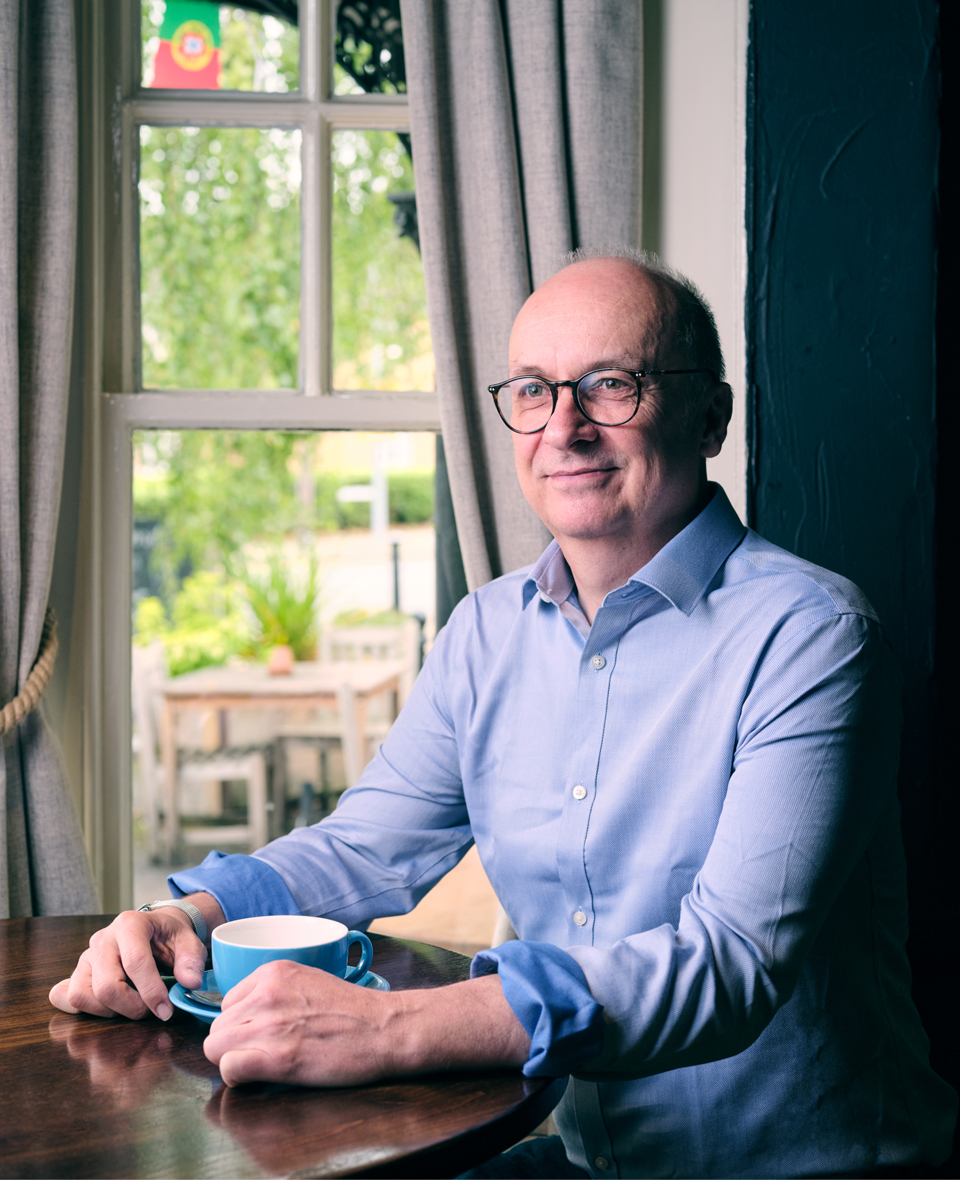

“It’s hard to see a pub closed … because it feels like you’re changing the world in that environment forever, potentially” Stephen Radford MRICS, Punch Pubs & Co
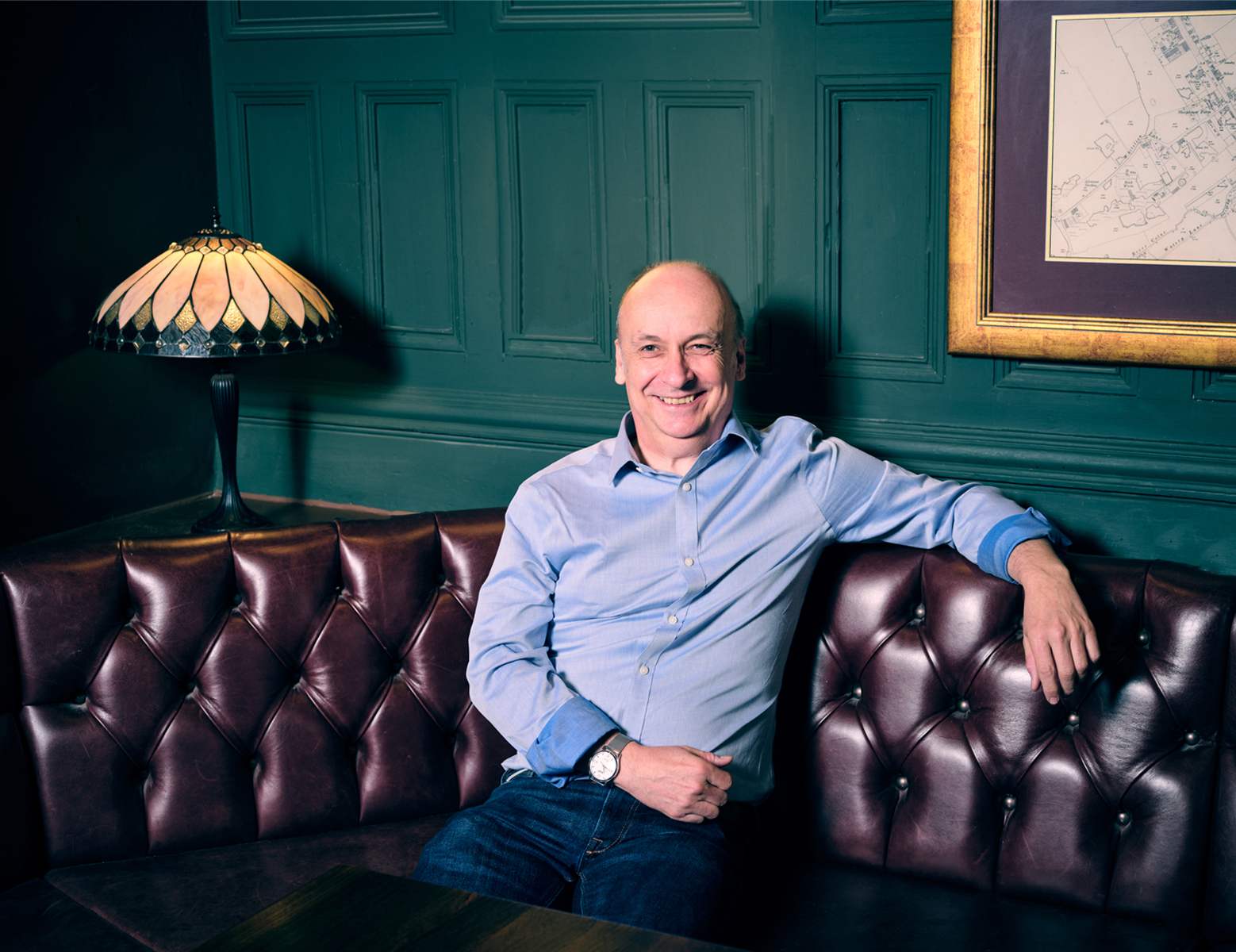
Becoming a surveyor
Radford says he learned the people skills which are crucial to his work from his first job working on the front tills of Halifax Building Society as a teenager. “You’d see hundreds of people, sometimes the same people every week,” he says. “I was dealing with large amounts of cash but also talking to people all the time. It was educational.”
His interest in property and ultimately surveying was piqued when he moved to become a mortgage advisor. “I read the [surveyor] reports, and it was almost like a book to read, the story of this house,” he recalls.
He then discovered commercial property, which he found much more challenging and spent four years studying part-time while working to get his degree from the University College of Estate Management (UCEM). “It was a long way round, but I’m pleased, because I think what I gained along the way has helped me in what I’m doing now.”
He started his career as a pub surveyor in 1998 with Avebury Taverns. Two years later he moved to Greene King, which ended up as a 16-year stint. “It was a long stretch, but the business changed massively in that time. It was a sleepy kind of East Anglian brewer but became the biggest village pub operator in the UK in that period,” he says.
He then “did something different” and joined Heineken for two years. Working for an international company, with global reach, he says gave him a completely different perspective. He joined Burton-based Punch five years ago.
He says what keeps him in the pub industry is his curiosity, the variety and the specialist knowledge he’s accrued: “I enjoy the fact that you need to have that curiosity to understand how the publican makes money. You don’t need that in valuing an office or an industrial unit. It’s a specialist kind of knowledge and it’s a specialism that I enjoy, and I don’t want to let that go and lose it.”
He also has tremendous faith in the resilience of the pub industry: “I think there’s some very interesting things coming down the line with augmented reality, where you could receive information through smart beer glasses [such as promotions delivered to your phone].
“I think the pub will evolve. It’s evolved through the past 500 years and it will continue to do so.”
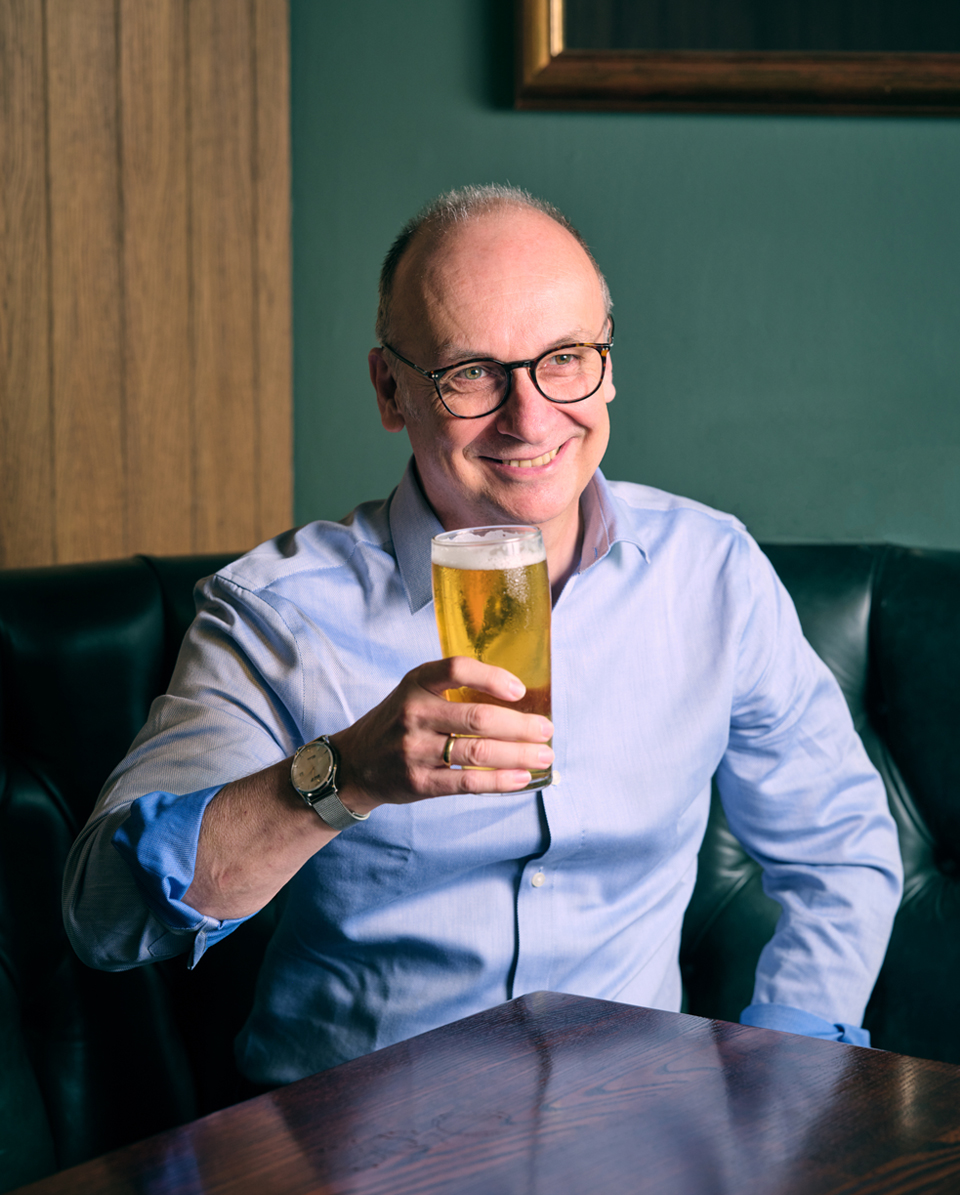
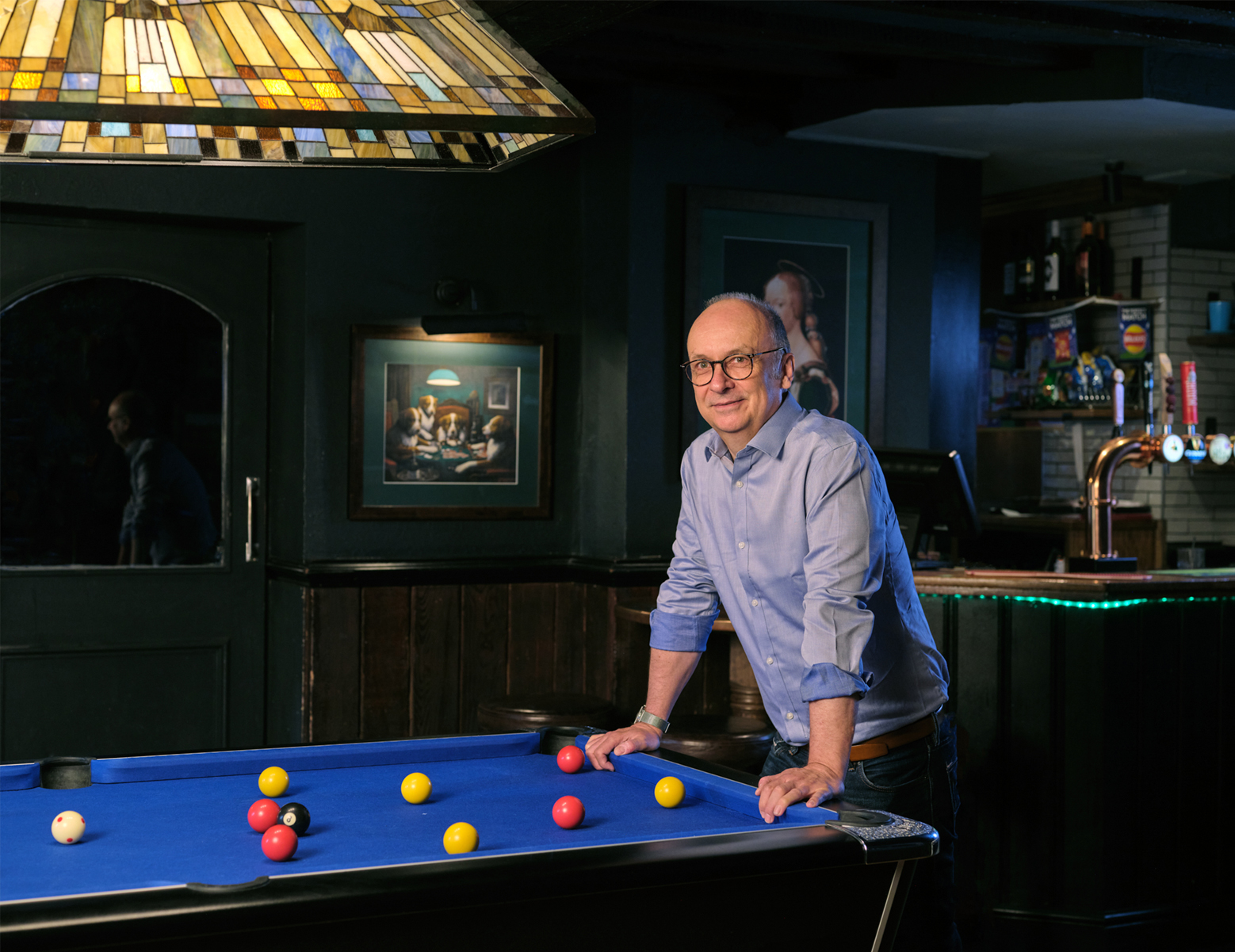
Professional standard for licensed leisure properties
RICS members and regulated firms provide professional advice and representation for tenants, owners and other stakeholders, such as lenders, across the licensed leisure industry. RICS is currently in the process of developing a new professional standard: Valuation of licensed leisure property 2nd edition (rics.org), to be published later this year.
It will replace the Capital and Rental Valuation of Public Houses, Bars, Restaurants and Nightclubs in England and Wales. RICS received contributions from tenants, individual owners, pub companies, industry bodies and valuers to our recent public consultation.
RICS has been careful to undertake development of the new standard in a balanced and inclusive way. The initial development process was undertaken through a series of forums involving tenants, operators, valuers, trade bodies and other stakeholders. Following this, a group of expert valuers developed the consultation draft.
The expert group does not include employees of pub companies or people operating licensed leisure businesses. Expert group members act for landlords and tenants from a range of valuation firm sizes. Recognising that non-valuers are also interested in this area; we’ve included specific additional guidance for them in the updated standard.

